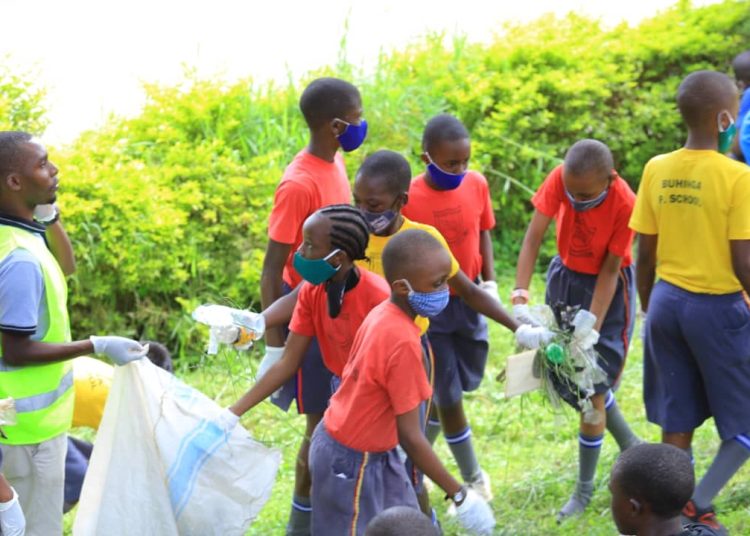Sports have always been a powerful tool for rallying people behind important causes. In the face of the global plastic pollution crisis, AFRIYEA Golf Academy is taking the lead in addressing this issue in Uganda through regular clean-up initiatives.
Recently, AFRIYEA Golf Academy organized a month-long clean-up event in Fort Portal, Uganda, where members of the golfing community and local residents joined forces to clean the town and water sources. One major contributor to plastic pollution is the excessive use and improper disposal of polythene bags, which have adverse effects on the environment and human health.
Plastics, some of which are not recyclable or biodegradable, can release harmful chemicals and have a detrimental impact on the environment. Additionally, the production of polythene bags consumes significant energy and contributes to greenhouse gas emissions. AFRIYEA Golf Academy has integrated environmental education into its curriculum to ensure that golf learners not only acquire golfing skills but also become well-informed about environmental issues.
The monthly clean-up drives organized by the academy serve to protect the environment while fostering a sense of community among Ugandans and golf enthusiasts. These events bring together community leaders and golfers to take transformative actions for environmental conservation.
The October clean-up had a specific focus on World Soil Day with the theme “Water is life, water is food, and leaving no one behind.” The academy collaborated with local organizations to raise awareness about environmental issues, beginning with the provision of clean water for all.
Recognizing the vulnerability of children and the elderly to worsening environmental conditions, AFRIYEA Golf Academy remains dedicated to involving the youth in safeguarding the environment. Environmental protection is a core value of the academy, and they consider it an essential element of their coaching agenda. This approach not only changes the narrative but also takes a proactive stance, empowering learners to address environmental challenges.
Polythene bags, derived from petroleum or natural gas, are a primary source of plastic pollution. With an annual production of over 100 million tonnes of resins, they represent a significant portion of the plastic market. However, their negative impacts are far-reaching, as they are difficult to recycle or decompose, leading to their persistence in the environment. This contributes to the alarming levels of plastic pollution in oceans, landfills, and ecosystems. Furthermore, polythene bags can release harmful chemicals into food, posing health risks.
Clean-up campaigns are instrumental in combatting plastic pollution by actively engaging communities, raising awareness, and driving action to reduce polythene bag usage. These initiatives aim to address the issue at its source by emphasizing responsible consumption and proper waste management.





























